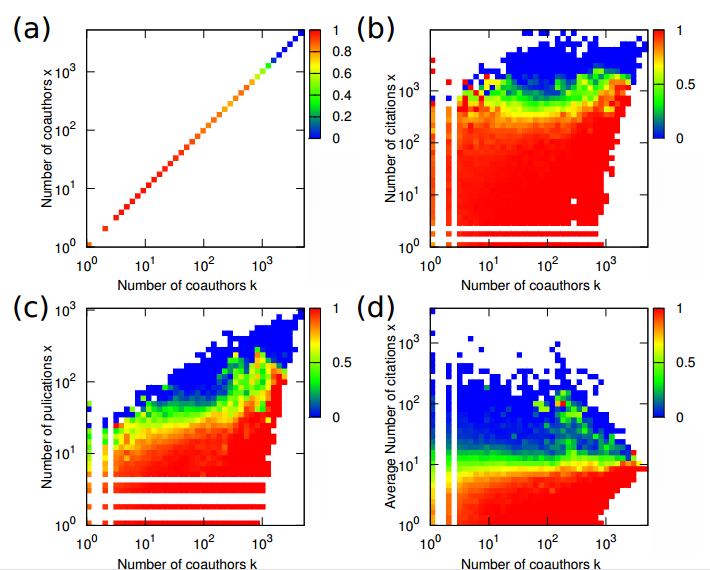How the Friendship Paradox Makes Your Friends Better Than You Are
Back in 1991, the sociologist Scott Feld made a surprising discovery while studying the properties of social networks. Feld calculated the average number of friends that a person in the network has and compared this to the average number of friends that these friends had.

Against all expectations it turned out that the second number is always bigger than the first. Or in other words, your friends have more friends than you do.
Researchers have since observed the so-called friendship paradox in a wide variety of situations. On Facebook, your friends will have more friends than you have. On Twitter, your followers will have more followers than you do. And in real life, your sexual partners will have had more partners than you’ve had. At least, on average.
Network scientists have long known that this paradoxical effect is the result of the topology of networks—how they are connected together. That’s why similar networks share the same paradoxical properties.
But are your friends also happier than you are, or richer, or just better? That’s not so clear because happiness and wealth are not directly represented in the topology of a friendship network. So an interesting question is how far the paradox will go.
Today, we get an answer thanks to the work of Young-Ho Eom at the University of Toulouse in France and Hang-Hyun Jo at Aalto University in Finland. These guys have evaluated the properties of different characteristics on networks and worked out the mathematical conditions that determine whether the paradox applies to them or not. Their short answer is yes: your friends probably are richer than you are.
The paradox arises because numbers of friends people have are distributed in a way that follows a power law rather than an ordinary linear relationship. So most people have a few friends while a small number of people have lots of friends.
It’s this second small group that causes the paradox. People with lots of friends are more likely to number among your friends in the first place. And when they do, they significantly raise the average number of friends that your friends have. That’s the reason that, on average, your friends have more friends than you do.
But what of other characteristics, such as wealth and happiness, which are not represented by the network topology?
To study other types of network, Eom and Jo looked at two academic networks in which scientists are linked if they have co-authored a scientific paper together. Each scientist is a node in the network and the links arise between scientists who have been co-authors.
Sure enough, the paradox raises its head in this network too. If you are a scientist, your co-authors will have more co-authors than you, as reflected in the network topology. But curiously, they will also have more publications and more citations than you too.
Eom and Jo call this the “generalized friendship paradox” and go on to derive the mathematical conditions in which it occurs. They say that when a paradox arises as a result of the way nodes are connected together, any other properties of these nodes demonstrate the same paradoxical nature, as long as they are correlated in certain way.
As it turns out, number of publications and citations meet this criteria. And so too do wealth and happiness. So the answer is yes: your friends probably are richer and happier than you are.
That has significant implications for the way people perceive themselves given that their friends will always seem happier, wealthier and more popular than they are. And the problem is likely to be worse in networks where this is easier to see. “This might be the reason why active online social networking service users are not happy,” say Eom and Jo, referring to other research that has found higher levels of unhappiness among social network users.
So if you’re an active Facebook user feeling inadequate and unhappy because your friends seem to be doing better than you are, remember that almost everybody else on the network is in a similar position.
Ref: arxiv.org/abs/1401.1458: Generalized Friendship Paradox In Complex Networks
Deep Dive
Policy
Is there anything more fascinating than a hidden world?
Some hidden worlds--whether in space, deep in the ocean, or in the form of waves or microbes--remain stubbornly unseen. Here's how technology is being used to reveal them.
What Luddites can teach us about resisting an automated future
Opposing technology isn’t antithetical to progress.
A brief, weird history of brainwashing
L. Ron Hubbard, Operation Midnight Climax, and stochastic terrorism—the race for mind control changed America forever.
Africa’s push to regulate AI starts now
AI is expanding across the continent and new policies are taking shape. But poor digital infrastructure and regulatory bottlenecks could slow adoption.
Stay connected
Get the latest updates from
MIT Technology Review
Discover special offers, top stories, upcoming events, and more.